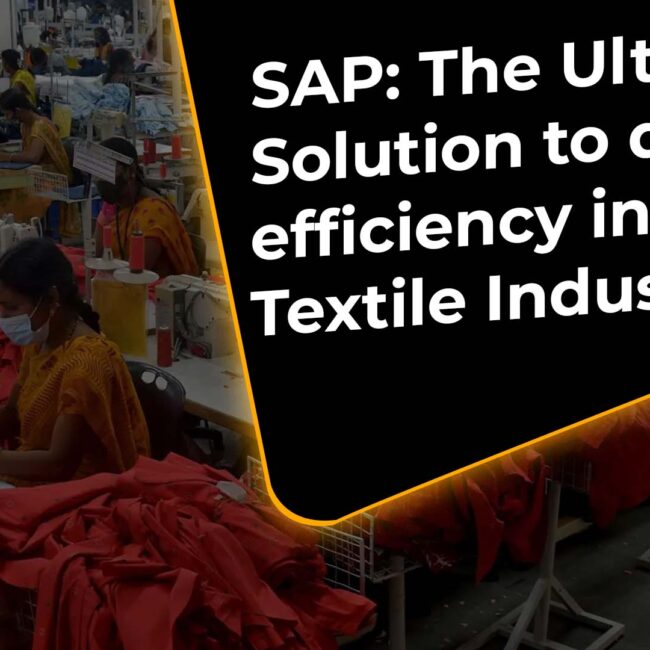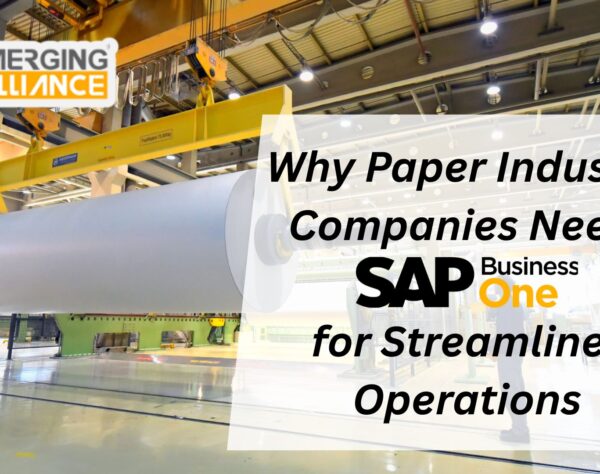
5 Reasons to Implement ERP for a Successful Textile Industry

ERP Software for the Textile Industry
In today’s fast-paced textile industry, efficiency and agility are paramount to staying competitive. Enter Enterprise Resource Planning (ERP), a comprehensive software solution that has revolutionized operations across various sectors, including textiles. In this blog post, we delve into the remarkable benefits of ERP for the textile industry, highlighting how it enhances productivity, optimizes processes, and boosts profitability. Join us as we uncover the power of ERP in transforming textile businesses into streamlined success stories.
Enhanced Operational Efficiency:
ERP systems bring a myriad of advantages to textile manufacturers, starting with streamlined operations. By integrating diverse functions such as inventory management, production planning, procurement, and sales into a unified platform, ERP empowers businesses to optimize their workflows. Real-time data access and centralized information enable efficient decision-making, minimizing errors, reducing redundancies, and fostering collaboration across departments.
Improved Supply Chain Management with ERP:
The textile industry heavily relies on a well-managed supply chain to ensure timely delivery and meet customer demands. ERP solutions provide end-to-end visibility into the supply chain, facilitating effective inventory management, demand forecasting, and procurement. With real-time insights into stock levels, order status, and supplier performance, textile companies can optimize their inventory, reduce stock outs, and establish stronger relationships with suppliers, ultimately enhancing customer satisfaction.
Enhanced Production Planning and Control:
Efficient production planning is vital in the textile industry, where factors like raw material availability, production capacity, and lead times play critical roles. ERP systems offer comprehensive production planning tools. These tools enable manufacturers to optimize scheduling, allocate resources effectively, and monitor production progress in real-time. By aligning production with demand, minimizing idle time, and streamlining workflows, ERP empowers textile businesses. This is turn maximizes output and reduce costs.
Accurate Financial Management in Textile Industry:
Maintaining sound financial health is crucial for any industry, and the textile sector is no exception. ERP systems provide robust financial management capabilities, including budgeting, accounting, and financial reporting. By automating financial processes, generating accurate financial statements, and offering real-time insights into key metrics, ERP empowers textile businesses to make informed financial decisions, identify cost-saving opportunities, and achieve better profitability.
Enhanced Customer Relationship Management with ERP:
In an industry driven by customer preferences and evolving trends, building and nurturing strong customer relationships is vital. ERP systems often incorporate customer relationship management (CRM) modules, enabling textile businesses to manage customer data, track orders, and provide personalized services. With a holistic view of customer interactions, textile companies can enhance customer satisfaction, tailor their offerings, and foster long-term loyalty.
Why ERP for Textile Industry?
The adoption of ERP systems has become a game-changer for the textile industry, revolutionizing the way businesses operate, compete, and grow. From enhancing operational efficiency and supply chain management to empowering production planning and improving financial management, ERP offers a host of benefits that propel textile companies toward success. Embracing ERP technology enables textile businesses to stay agile, responsive, and ahead of the curve in an ever-evolving industry landscape.
If you would like to know more about our ERP services, please visit us at: https://www.emerging-alliance.net/







